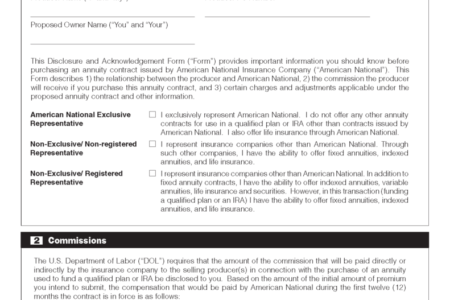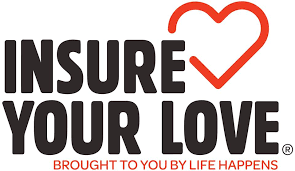Shared by Producer: Arnold Honda, J.D.
Arnold Honda, J.D., is a life member of Million Dollar Round Table and a top producer of Occidental Underwriters. He’s had a wealth of experience in the industry and continues to provide excellent service to his clients.
What are the different ways to communicate with Clients?
Face to face, as always, is the best way of communicating, but in today’s paced world, it isn’t always possible. The next would be phones calls which is the second-best way of communicating.
The issue here is how do we get our clients to the point of wanting to meet in person or at least communicate on the phone.
Today, we will explore different ways to communicate and the best ways to communicate with clients that will spur them to talk one-on-one with you.
Today’s world is different. People’s free time is limited, and many seem to be busier and more engaged in their careers, family, friends, and community activities more than ever. Idle time is occupied with texting, emailing, or talking on the cell phone. For the advisor, it is almost impossible to meet with clients face to face, 1 to 2 times a year, to go over their portfolio, update them on the market, and share ideas that may be of interest to them.
Email vs. Direct Mail
In lieu of face-to-face appointments, Zoom or phone calls can work out well and many advisors think that email is the only way to go vs. (snail) direct mail is not. Each has its merits, but don’t preclude one form of communication over the other. Sometimes you will use them in combination.
Email
- Positives
-
- Communication is done instantly.
- Cost-effective with virtually, no cost.
- Blanket emails can send the same email instantly to a group of people with a fast click of the mouse.
- Call to action when a client needs something ASAP, like 1099 for taxes, this can be done instantly.
- As an alternate form of communication, people may actually communicate back and forth via email.
- Shelf life: It doesn’t have a shelf life like direct mail, but those that don’t delete it, can refer back to the email and what exactly was said vs. trying to remember the conversation. Nowadays you can electronically store email from clients. However, clients storing your emails is unlikely.
- Negatives
- Shelf life: If a client deletes an email, then it will have a short shelf life.
- Junk emails: 50% or more emails are junk emails and though you can filter them out, you cannot filter out all of them. Because of this, clients may accidentally delete the email.
- Subject line: If not short, the client is less likely to read it.
- Email may be categorized as not important or impersonal. If the advisor is constantly bombarding the client with all types of sales info plus call-to-action emails, the client is less likely to read.
- When you should use Email
- The client insists all correspondence is done via email.
- As a call to action if something needs to be done right away.
- The client reads all their emails or at least emails from you.
Why add DIRECT MAIL to your arsenal to communicate with clients
One of the most important forms of communicating is doing something that is unique, outside the norm, that catches people’s attention. Whether it be advertising, sales, or just plain communicating by letter, doing something unique always works.
In the past, people mostly communicated by mail
Yes, in years past, letters were one of the only ways of communicating. When there were no telephones, cell phones, or emails, people didn’t have a choice so they communicate through the mail.
If alternate forms of communication are instant, why use direct mail?
The very reason why most people don’t use direct mail is the time it takes to write it out, type, fold letters, stuff, and stamp it. The whole process is time, energy and costs drive people away from utilizing direct mail.
However, think about it, these very reasons are what makes direct mail unique. Our clients are no longer flooded with a much junk mail as before, that has gone to email. Direct mail is more important than ever to our clients because it is personalized and directed to them or a small group of people. Many realize the importance of direct mail because we took the time, energy, effort, and incurred costs to send it to them. Remember, when anything is done that is not the norm then it becomes unique, and people remember it and appreciate it more.
What also makes it unique are the variety of letters
Just because you took the time to send the client a letter, doesn’t mean anything if the content isn’t worth reading. Overall, you want to send short, concise, but more importantly meaningful letters, so where the client receives them, they are more opt to read than throw them away.
Don’t just send solicitation letters, but other letters as well
Once again, oftentimes salespeople send out letters soliciting a product or service. It’s logical in a sense because the advisor feels it brings in income. However, in the client’s eyes, it becomes predictable and may very well stereotype you as always wanting to sell them something, thus once again they can drive them away and not read the letter.
What gets clients to open and read letters
Once again, letters that are unique, outside the norm, issues, and stories that people can gravitate to. Here are the different categories of letters I sent out:
- Call to action letters to inform clients
-
- Term life is in the final year and there are options available
- Policy or Investment Portfolio Review
- What’s happening in advisor’s (my) life on both a personal and business level.
- Having surgery on my shoulder, but service will continue.
- Was hospitalized, could have died but the value of life insurance was clear, and communicating with loved ones is important.
- History of children growing up, divorce, parents and loved ones passing, etc.
- Office anniversary, 30 years of service, and people in the staff. It is an honor and privilege to have you as our client.
- Rationalization
- The client gets to know you, more than an advisor but as a human being.
- Many clients that I have not talked to for years, act like it was yesterday. That is because they know about my history.
- Inspirational Stories ~ “Feel Good Letters” VERY IMPORTANT
- It could be something I read or wrote.
- Feel Good Stories ~ carry a lot of “clout.” In today’s fast-paced world, we mostly hear about negative news. Negative news sells, murders, crimes, celebrities caught cheating, etc.
- Positive or inspirational stories are rare. I call it feel-good stories because that is what most people say after reading them. Letters that touch people’s hearts.
- How does something like that have anything to do with our business?
- Absolutely nothing, but many will remember that this is a part of Arnold’s letters and that he shared them with us.
- Many of them save the letters, put them on their refrigerator, ministers have used them in their sermons. One client shared it with her ladies’ group.
- Stories about
- Simple things in life and how important they are in the long run.
- How people have overcome personal challenges in life and dealt with them head-on.
- Letter of Love
- Explains the value of conveying your last message to loved ones before you die or before I die.
- I used a letter I wrote to my mom 4 years prior to her passing.
- Informational letters
- Changes to laws, for instance, due to COVID, MD is extended to age 72 instead of age 70 ½, or MD can be skipped for 2020.
- Tax reform act and how it might affect a client.
- Market updates
- Market correction and how past history plays into it. Educating at the same time, calming clients down about being emotional during these times. The rationalization of staying invested.
- Certain dates on deadlines
- IRA and Roth IRA deadlines
- Importance of having them.
- Upcoming MD and how it affects clients.
- Any issues or world events ~ 9/11, wars, Bernie Madoff
- The value of Long-Term Care Insurance and its rising costs.
- Survey letters (similar to call to action)
- Letters that clients can respond to by checking off yes, no, n/a, or they can write in comments.
- Examples
- Do you have a trust or will?
- What do you prefer email, mail, Or both?
- Do you want a third-party opinion on investments?
- When was the last time you had life insurance or investments review?
- Thank you letters
- It’s always nice to acknowledge and thank people
- Referrals
- Being clients all these years
- For scheduling an appointment
- Birthday letters
- If your software allows you to know when everyone’s birthday is, then send out a letter.
- Make generic letters for every age to avoid duplicates.
- Example
- Age 21: Reaching adulthood
- Age 65: Qualified for Medicare
- The importance is that no matter how short and cheesy it is, people enjoy getting recognized for their birthday.
- Comments like, “my own wife forgot my birthday, but you didn’t.”
- It doesn’t have to be on the expensive card, just a printed letter with your original signature. You can always add comments.
The Logistics of Direct Mail
- Create your own logo
- Google “create your own logo”
- It will give you ideas for free or a small fee to have one.
- If you know a graphic artist, even better.
- Why is a logo important?
- Form of branding ~ clients immediately identify it is you.
- The logo on top of a business card or top of the letterhead
- Professional image ~ sets you apart from others
- It immediately grabs people’s attention
- Makes a strong first impression
- Example of logo
- Nike ~ the simple logo all consumers know it is Nike. The swoosh symbol is the shape of a wing.
- Print letterhead with the following:
- Top of letterhead
- Your logo on top left corner
- Optional ~ saying jingle, or message can put services offered 404k, IRA.
- Bottom
- Phone, address, website
- Securities offered by Royal Alliance ~ see Royal compliance
- Shows you are an advisor for a broker-dealer
- Print on heavy bond paper
- Nice stationery on heavy bond paper for a cover letter is important.
- Envelope
- Upper left corner
- Window envelope
- Just printing clients address one time, one time in letter
- Have a smaller postage prepaid envelope (return envelope)
- On it (see provided sample) for Business Reply Mail with permit number on it.
- Your name and address
- Post office will hold envelopes and you pay only what is mailed back.
Frequency of Mailings
- How often should I mail out?
- 2 to 5 times a year
- Be selective to what you send out. Just because you want to send out 4 letters a year and the forth letter is composed, don’t send out junk.
- Rationale
- If mailing too much, then loses the novelty.
- If mail too infrequently ~ 1 every 2 years, a client may not open it.
Content is most important
Do not be worried about Grammar or Syntax; just be you. I recommend you write, just like you would talk or tell a story. Communication is most effective if you be yourself.
For example, when I was at U.C.L.A., I took a speech class. Our professor was very effective and well respected. She was Professor of the Year at U.C.L.A.. When I got up and spoke, I tried to enunciate each word, speak clearly, and use proper grammar. WRONG, the best speaker was a Chicano guy with a thick accent. He dressed as if he was going to the barrios, and he used slang, and his grammar was poor. Why was he the best speaker in our class? Because he was authentic, he was himself, he focused on delivering his message the best way he could, and that is to be him. He was very engaging, and people would listen.
The message of being yourself not only applies to letter writing and speech but all forms of communication. Take music for example, Billie Eilish is really popular singer and rightfully so. Her voice is not strong or powerful. She isn’t trying to hit all the notes to show her vocal range. She is popular because she is unique and has her own style of singing and she tells a story which attracts a lot of people especially young. However, it even attracts old men like myself to appreciate her depth of her message, her unique style is captivating.
Remember, the best you can be is yourself. That goes for face-to-face presentations with prospects. Just being yourself is the best way to communicate. Back in the ’60s and 70’s one of the life insurance agents was Ben Fieldman. Ben was a short, pudgy Jewish man with one bad eye. Kind of like me, although I am Japanese. When he spoke, he had a definite lisp. He lived in a small town called Liverpool, Ohio, yet he sold more life insurance than any agent for N.Y. Life. Why, because he was himself, authentic. I can’t empathize enough of “being the best is being yourself”. I created a new phase “Being the best is being yourself.”
Summary
Adding Direct Mail to Clientele Base is Valuable
- Puts your name and face in front of client.
- John Savage would call it “High Touch Selling” ~ being human and personable.
- Shows you care
- Took time, effort, and money to send out.
- Whether the letter is call to action, informational, survey, informative is feel good letters.
- Shows that you are on top of your game.
- Difference in many clients between being a lousy agent vs. a great agent may be as simple as communication.
- People will cherish, especially the “feel good letters”
- Some of them save them, some put them their files, some on their refrigerator, but most importantly, they save the image of the letters associated with me.
- Letters have a long shelf life ~ whether they read it again and again or they put in their calendar binder for a late date to review it. it has shelf life literally and figuratively.
- Instead of wining and dining certain clients, use the money to send out a message to all your clients.
- Clients will sometimes share my letter for others to read. This could lead to indirect referrals.
- Clients will remember my name “Arnold Honda”
- Through time, the letter creates credibility, new sales, referrals, loyal clients, lifetime clients.
Remember, sales isn’t an exact science or everyone would do it. It’s communicating and putting your spin on things. Remember, “Being the best is being yourself.”








